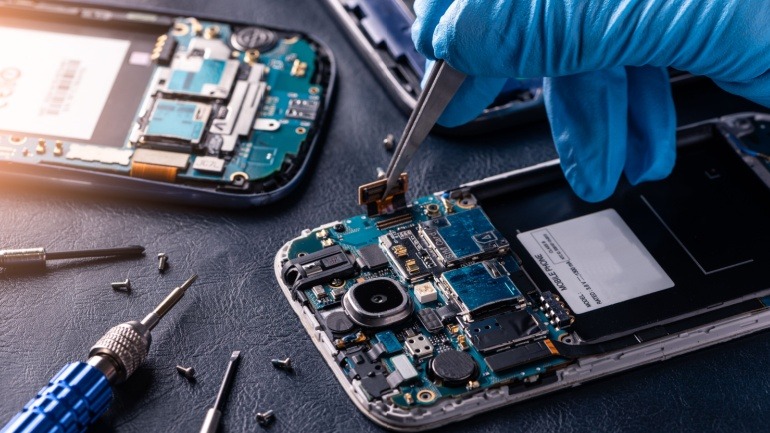The introduction of Apple‘s iPhone C1 modem chip marks a pivotal advancement in the tech giant’s strategy to curb its reliance on Qualcomm. Apple intends to reduce its dependency on Qualcomm’s modem hardware by 80% by 2026. The C1 modem combines advanced technologies, including a 4-nanometre baseband processor, positioning it as a significant development since Apple’s acquisition of Intel’s smartphone modem business for $1 billion in 2019.
This newly designed C1 modem chip is part of Apple’s iPhone 16e, retailing at $599. It reflects Apple’s desire to internalize component design, particularly following its successful transition to ARM-based processors across its product lines. As Johny Srouji, Apple’s senior vice president of hardware technologies, highlights, “We build a platform for generations. C1 is the start, and we’re going to keep improving that technology each generation.”
A closer look at the technical specifications reveals that the C1 modem supports enhanced network performance through its integration with Apple’s processor chips. This integration prioritizes time-sensitive data amid network congestion, according to Arun Mathias, vice president of wireless software at Apple. However, the chip currently lacks millimeter-wave 5G support, an area where Qualcomm maintains a strong foothold.
From a commercial standpoint, despite the forecasted reduction in Qualcomm’s modem presence in Apple devices, Qualcomm retains its technology licensing agreement with Apple through at least 2027. Interestingly, this partnership is multifaceted, with Qualcomm’s shares experiencing a slight increase following Apple’s announcement, while Apple’s remained unchanged.
The journey toward custom modem creation presents significant challenges. Only a few companies, like Samsung, MediaTek, and Huawei, have achieved similar feats. Modem chips must be compatible with numerous global carriers and adhere to different regional standards, making this an arduous task.
Apple’s history with Qualcomm is marked by a notable legal conflict that concluded in 2019, when Intel’s modem capabilities proved insufficient. Nevertheless, Apple persisted in its in-house modem technology development, investing heavily in research. According to Srouji, Apple is not aiming to compete directly with other vendors like MediaTek but rather to offer unique benefits to its own consumers.







